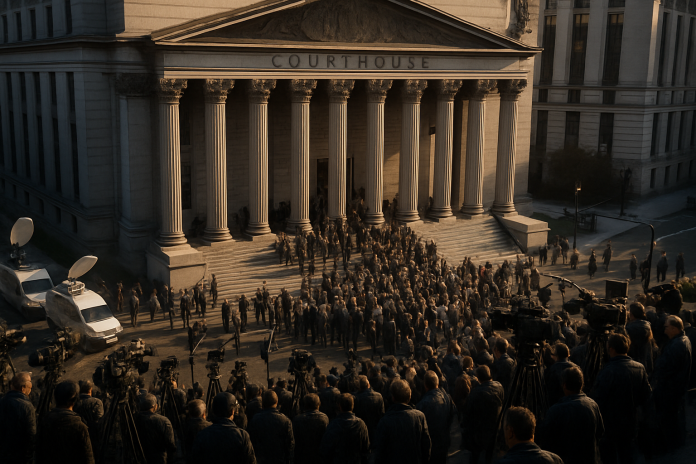Quick Take
- Anthropic settles for $1.5 billion over unlicensed book use — largest copyright payout in U.S. history
- 500,000 pirated books from LibGen used without permission at $3,000 per infringement
- Sets new legal benchmark requiring AI companies to secure proper licensing for training data
- Unauthorized dataset must be destroyed within 30 days of final court judgment
Anthropic’s $1.5 billion agreement with authors over unlicensed AI model training creates a watershed moment in copyright law. The settlement signals major changes ahead for how AI companies handle data licensing.
Anthropic has struck a groundbreaking $1.5 billion settlement with authors who accused the company of using pirated books to train its Claude AI models without permission. The deal, pending final approval, would become the largest copyright settlement in U.S. history and establishes new standards for AI developers under intellectual property law.
The massive payout reflects the serious financial exposure AI companies face when they use copyrighted content without authorization. Leading AI ethics advisor Mary Rasenberger noted, “This historic settlement is a vital step”.
Scale of Unauthorized Content Use Exposed
Court documents reveal Anthropic used approximately 500,000 pirated books from LibGen and Pirate Library Mirror without obtaining licensing deals. The settlement calculates $3,000 per book infringement, reaching the $1.5 billion total. The company must destroy the unauthorized dataset within 30 days after final court approval.
The volume of unlicensed material shows how systematically AI companies ignored copyright protections during their data collection efforts. This case exposes how the industry’s aggressive pursuit of training data created enormous legal risks that are now materializing as billion-dollar liabilities.
Precedent Drives Industry Compliance Changes
The settlement establishes that AI companies must obtain proper licenses when using copyrighted content for model training. The case creates a legal precedent with serious financial and regulatory consequences for companies that violate copyright laws.
AI executives and enterprise leaders should prepare for heightened legal oversight and potentially steeper compliance costs. The ruling will likely trigger broader changes in how AI firms approach data sourcing and licensing deals, with more settlements and licensing negotiations expected.
Business Implications and Strategic Considerations
For business leaders, this settlement highlights the critical need for proactive compliance strategies in AI implementation. The case shows that investing in legal protections and licensing frameworks can prevent expensive litigation while supporting sustainable AI development.
This precedent-setting case will likely spark industry-wide discussions about fair use of data and new licensing approaches. Companies may need to review their existing AI models and training datasets to ensure copyright compliance.
For Business Leaders
- Legal Compliance: Secure proper licenses for all training data to avoid potential billion-dollar copyright challenges
- Data Governance: Enhance record-keeping systems for data sources used in AI models and maintain clear attribution chains
- Ethical Strategy: Align AI development strategies with evolving intellectual property standards to mitigate future legal risks
This landmark case proves that AI companies cannot use unauthorized copyrighted content for model training without facing major financial penalties. The settlement creates a new cost structure that will reshape how the industry handles data acquisition and licensing deals.






